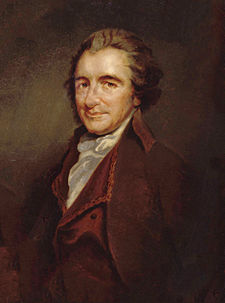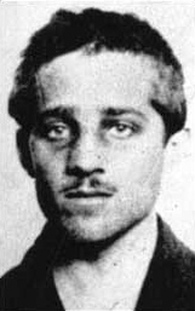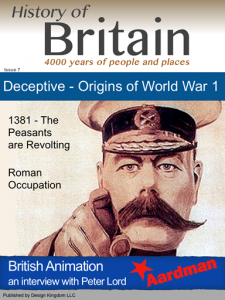History of Britain Article Issue 8 April 2014

Forgotten Man: Tom Paine, Poet and Revolutionary
Tom Paine shook the world. It’s apt then that as a child in the Quaker meetings of his home town Thetford, he perhaps shook, trembled and ‘quaked’ to receive ‘the light-of-God’. Formed in the wake of the English Civil War, a hundred years before Paine’s birth (in 1737), this highly non-conformist Christian sect, rejected the Church of England and generally scorned most forms of ‘authority’. This was the origin of Paine’s later Deism, expressed devastatingly in ‘The Age of Reason’ (1794), where Paine, rather like a modern day Christopher Hitchens, vehemently shakes and rattles the central tenets of Christianity and other religions of ‘the book’.
As a boy, following the Lent Assizes, Tom witnessed the yearly ritual of executions on the local gallows hill. Since the Civil War capital punishment had quadrupled. Commoners were hanged by their ‘betters’ for crimes as innocuous as stealing a packet of tea. The injustice and inequality of this made a lasting impression. The seeds of his political classic ‘The Rights of Man’ (1791) were planted early. On its release, this book threatened to cleanse the corrupt waters of Georgian England, selling more copies than any other book (excluding the Bible) ever published up to that time. This so worried George III he paid mobs to burn effigies of Paine, instead of Guy Fawkes, on bonfire night. Paine was indicted for sedition and made an outlaw in his own country having been tried in absentia (he escaped to France thanks partly to a warning from William Blake).
These two streams of belief: firstly, the religious notion that God was ‘a church in one’s own mind’ and secondly, an unquenchable universal Republicanism (that in an age of Monarchies defiantly insisted all people, be they king, slave, man or women, were equal) entwined and remained the deepest, almost elemental, currents within his life. ‘Independence is my happiness’ he once said but ‘…my country is the world and my religion is to do good’.
This one time humble Stay-maker from Norfolk, would become famous on both sides of the Atlantic during his lifetime, massively influencing first the American, then the French Revolution. Oddly, this legacy is often almost forgotten by historians.
In 1775, having emigrated from England to Philadelphia, Paine published his astoundingly successful book ‘Common Sense’, urging fellow colonial ‘Americans’ to demand Independence. ‘The sun never shone on a greater cause’ he said and they agreed.
He became friend, colleague and inspiration to three American presidents. ‘Common Sense’ (his popular non de guerre) not only fermented the notion of Revolution in the ‘American’ mind, he later, during one critical phase of the War of Independence, helped save the Continental Army’s commander-in-chief George Washington and his men from despair and capitulation. In Leutze’s iconic painting Washington is famously depicted heroically crossing the frozen Delaware in December 1776. Only days before, a despondent Washington had predicted, ‘…[soon], our American game will be pretty well up’. Only after Paine’s specially written pamphlet ‘Crisis’ was read to the despondent troops, were they inspired to follow Washington across the river and win a revolution. In the happy days after Independence Paine explained to Benjamin Franklin why he now had to sail to France and aid in their revolution ‘Where freedom is not that is my country’.
Years later, in 1792, during the post-revolutionary ‘Reign of Terror’ in Paris, Paine was languishing in Luxemburg prison, under threat of execution by guillotine. This one-time hero of both revolutions, in his own moment of ‘crisis’, was in desperate need of Washington’s help. Washington didn’t reply to his requests for help. Paine in later years was convinced Washington had abandoned him because it wasn’t politically expedient at the time for the now first President to intercede. However Paine’s biographer John Keane has indicated that Washington possibly never received Paine’s letters until after it was relevant. In either case, it was left to the good graces of James Monroe, later fifth president, to eventually save Paine’s life.
To realise the size of Washington’s betrayal as far as Paine was concerned, one should recall that in 1776 Paine had also deeply influenced another future president Thomas Jefferson, during the formation of the ‘United States of America’ (a name Paine suggested). Some historians side with William Cobbett’s assertion that, ‘Whoever may have actually written the Declaration of Independence [i.e. Jefferson] Tom Paine was its real author.’ Kenneth Griffith, in his vivid documentary ‘The Most Valuable Englishman Ever’ (1982), certainly agreed and added that Paine’s first meeting with Benjamin Franklin in England in 1774 has often been called ‘the true beginning of the great North American Republic’. Undoubtedly Paine was occasionally prone to hyperbole concerning his role in matters and certainly Cobbett’s comment closely reflects Paine’s own recorded testimony and self-estimation on such matters.
In the September before Paine’s arrest, the Jacobins: Danton, Robespierre and Marat had called for the execution of Louis XVI. This act instigated ‘The Terror’ drowning the ideals - passionately promoted by Paine - of Liberté, Egalité, Fraternité, in blood. In the Assembly Paine stood-up to Marat saying, ‘France has been the first of Europe’s nations to abolish monarchy, let her also be the first to abolish the death sentence. I vote for the perpetual banishment of Louis Capet, sometime king of France.’ Marat’s reply reveals, a reality Paine himself often exposed, that power corrupts and truth becomes a dead letter when the equality of the human beings is ignored. As a Quaker, Marat argued, Paine was ‘incapable of the liberality… necessary for condemning men to death.’ Which in a single breath neatly encompassed both a perversion of Paine’s faith and a mangled notion of the word ‘liberty’. Marat compounded this calumny with the xenophobic iteration ‘[Frenchmen] should cut off the ears [of foreigners] let them bleed for a few days. Then cut off their heads!’
Paine inflamed authorities, condemning old hierarchies and new alike. The young Napoleon on meeting Paine said ‘A statue of gold should be erected to you in every city of the universe’. With typically acute judgement Paine said of the future Emperor ‘[He’s] the completest charlatan that ever lived’.
How is it then that only five people attended Paine’s funeral in 1809? The once Secretary (to the Committee) for Foreign Affairs of the United States and member of the French Assembly, who not long before walked arm-in-arm with President Jefferson around the capitol (wisely advising Jefferson to buy Louisiana from France), was forgotten or worst reviled? Housewives scolded children, ‘The devil or Tom Paine will get you!’ This progenitor of two revolutions, instigator of democracy in both Old and New Worlds, not long before his death was even refused a vote on election-day. Why? Put simply because he never desisted from telling truth to power, be it Monarchical, Republican or Democratic.
A typical example of this was when Jefferson was composing the Declaration of Independence. Paine influenced Jefferson on practically every point but one: the abolition of slavery. As it was these slave-owning republicans, newly liberated themselves, found the truth, ‘all men are created equal’, too difficult. Had they had the strength to listen to Tom Paine perhaps the American Civil War could have been avoided. They chose to ignore Paine’s trembling anger and his argument: ‘…with what consistency or decency can we argue of Britain’s attempts to enslave us, while we hold so many thousands of black people in slavery?’ As too often since Paine’s words were quietly forgotten. This was one political ‘quake’ he could not effect in his lifetime.
History of Britain Article Issue 7 March 2014 |
Gavrilo Princep
|

Deceptive The Origins of The Great War
In the Hulton Archive there exists an old, black and white photograph from July 1955 of a deceptively innocent looking street corner in Sarajevo*. In fact, it’s of a crossroads and it could be said it was on this crossroads that, along with the Austro-Hungarian empire of the Hapsburgs, the four great empires of Europe: Britain, France, Germany and Russia had the misfortune to come crashing together.
In the foreground, by the curb-side of this benign looking picture, are two footprints. Turn your head as you place your feet on those footprints and you can still see a somber plaque saying that it was from this point on the 28th June 1914 that Archduke Franz Ferdinand and his wife Sofia Choteck von Chotkova were assassinated by the teenager Gavrilo Princip.
Gavrilo, a pallid, tubercular youth, perhaps felt the hand of destiny touch him, as he sat despondently eating a sandwich at a café on that corner. An open-topped Phaeton car passed by but the driver, having taken a wrong turn, put the brakes on and slowly reversed to within feet of the café. Through a crowd, Gavrilo saw that in the back seat of the Phaeton was the heir to the Austro-Hungarian Empire.
Earlier that day, a bomb thrown by Nedjelko Cabrinovic, a fellow Serb nationalist and friend of Gavrilo, had bounced off the bonnet of the Phaeton and exploded under the wheels of another car in the Archduke’s motorcade. This botched assassination attempt by the so called ‘Black Hand’ had left two of Ferdinand’s entourage seriously wounded and injured a dozen spectators. It was in fact these injured that the Archduke insisted on visiting in hospital and the reason his driver, Leopold Lojka, was unfamiliar with the route he was taking.
As if it were a scene from Conrad’s 1907 novel The Secret Agent, Gavrilo was unable, due to the crowds, to pull out the small bomb he’d been issued with. He quickly reverted to his Browning pistol and managed to fire two fatal shots. He confessed later, ‘Where I aimed I do not know... I even turned my head as I shot’. For the fatalistically minded, Lojka’s unintended detour was literally the turning point in the history of the 20th century.
There are, traditionally, a number of uncontested factors that made this assassination the tipping point that led to the Great War. Amongst these was the rise of the Pan-Slavic and Nationalist independence movements in the Balkans, which had begun as early as 1829 with Greek independence and culminated in the shooting. The eventual consequences of which, whilst welcomed by some, were unintended. Gavrilo’s generation wanted a Greater Serbia, no longer under the yoke of the Hapsburgs. His statement after his arrest was simple and limited, ‘I am a Yugo-slav nationalist, aiming for the unification of all Yugo-slavs and I do not care what form of state [we achieve] but it must be free from Austria’. Archduke Ferdinand was a reformer of an Empire with fifteen different nationalities, who, it was feared by the revolutionaries, planned to devolve power regionally, federalise and thus dilute aspirations for Slavic independence.
Another factor was a complex of treaties, conventions and ententes that existed between the European empires and led to a ‘domino effect’. One event, almost mechanically setting off another in the post-assassination period now called ‘the July Crisis’. The dominoes fell like this: To begin with, the Dual Alliance Treaty (1879) between Germany and the Austro-Hungarians (made because Otto von Bismarck almost obsessively feared attack on two fronts) said that they would, as allies, declare war if Russia or France mobilised to attack either Empire. In a similar vein the Franco-Russian Military Convention of 1892 promised each signatory assistance in the event of attack.
Ferdinand’s assassination provided the Austro-Hungarians with an excuse to effectively initiate a war between themselves and the Kingdom of Serbia. They assumed or gambled that the Russians would not involve themselves in this small ‘domestic’ war. The Russians however, with ethnic and power interests of their own in the region, mobilised their army.
In 1905, the Germans had created the Schlieffen Plan. This plan was based on the premise that, if Russia mobilised and went to war, France would soon follow. Germany would then be faced with Bismarck’s nightmare, war on two fronts. However, the giant Russian army would take several weeks to mobilise. In this breathing space Germany could attack France, not on their mutual border, heavily defended by French forts but via neutral Belgium. The Germans with this surprise attack felt they could, as it were, ‘Be in Paris by the weekend’.
Unfortunately for the world there existed yet another dusty, old treaty of seventy-five years standing. This was the Treaty of London (1839) in which Britain undertook to defend the neutrality of Belgium. Additionally, the ‘Entente Cordiale’ of 1904 between Britain and France, had effectively ended a thousand years of bellicose attitudes between the two neighbours. This cordial agreement was a colonial ‘carve-up’ on a host of matters, such as, France staying out of Egypt if the British kept their nose out of Morocco. Given these conditions, if Germany invaded Belgium, Britain, the largest empire in the world, would be forced to make a decision as to whether to initiate a global conflict. Thus becoming the final ‘domino’ to fall.
This is often where opinion between historians begins to divide. One distinction of this war is the mountain of documentation associated with it. No historian can hope to read all the relevant literature which includes multi-volume editions of official diplomatic papers and literally tens of thousands of books. Almost any polemic on the origins of the conflict can produce some material basis for its defence. Therefore, the general reader would be wise to note any historian’s ideological predisposition (as well as their own).
The independence movements, the alliances, the built in militarism and propaganda of the Imperial powers, provide necessary but perhaps not sufficient causes for the war.Two contemporary but very opposed historians, who attempt to find such sufficient causes are Max Hastings and Niall Ferguson.
Hastings, whom one might caricature as ‘old school’, vehemently argues that one essentially distorts the history if one ignores the ‘moral culpability’ of the combatants. No one nation was fully responsible but the German Empire, he asserts, was the principal aggressor, particularly barbarous and as such provides the looked for sufficient cause. Germany had a record of committing genocides in South West Africa (of the Hereo and Namaqua, 1904-7) and then, when it invaded Belgium, human rights atrocities (the execution of over 6,000 Belgians). It is also through this prism he believes that one should view the genocides of the Second World War.
Obversely, Ferguson feels nothing was inevitable on the Sunday afternoon that the British officials met to decide for or against war. The German policy and war objectives indicate that they wanted a continental war between nations but not a world war between empires. Going into the meeting the majority of participants would probably have said they were against war with Germany. We are taught Britain came into the war because of the threat to Belgian neutrality. However Ferguson says, if you examine the sources, these Liberal politicians were rather cynical about the matter, it merely provided a good pretext for war. The motivating reason behind the decision was, suggests Ferguson, more ‘frivolous’ but no less sufficient. Many were unemployed in Britain and the Liberals feared defeat in an election. A popular war was a way of avoiding such humiliation. A significant minority forced the issue. The Foreign Secretary, Sir Edward Grey, threatened to resign if Britain didn’t declare war and a young, belligerent Winston Churchill, then in the Admiralty, suggested what soon became common parlance, that, ‘it would all be over by Christmas’.
In 1965, Powell and Pressburger released a film, the eponymous hero of which knew his Clausewitz, dressed in feather-plumed, gaudy uniforms and happily obeyed the rituals of war. This fictional character, Colonel Blimp, appears out-dated, but replace his cinematic image with that of a marine portrayed in contemporary recruitment adverts and it’s clear that war is still often projected as a kind of elevated costume drama. In a post-modern world, the appeal and power of such imagery, especially to the young, is often derided. Yet, with the continued popularity of war, it seems true to say that, the old Horacian appeal, Dulce et decorum est pro patria mori (It is sweet and fitting to die for one’s country) is not yet seen as a lie by most.
Nineteenth century Imperialism was at the heart of the causes of the First World War, the background to which were such avaricious enterprises as the ‘Scramble for Africa’ and ‘The Great Game’ (between the British and Russians in northern India). Powerful elites wanted economic supremacy and on the surface at least, not unlike modern Liberal-Democracies, justified war on the grounds of: the need to defend nation states, progress, enlightenment and universal humanity. Twenty million people were killed in the war. Such ‘justifications’ are like the apparently innocent, 1955 black and white photograph of a crossroads from the Hulton Archive. Deceptive.
* To see the photo go to www.gettyimages.co.uk/detail/news-photo/the-footprints-of-gavrilo-princip-in-sarajevo-marking-the-news-photo/76312228

